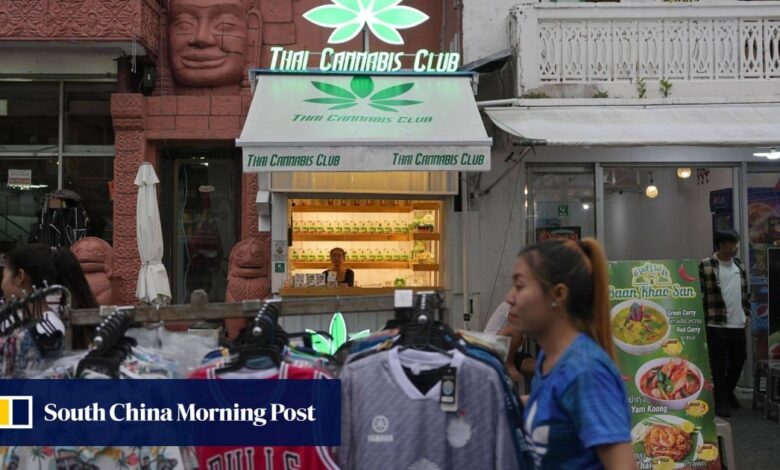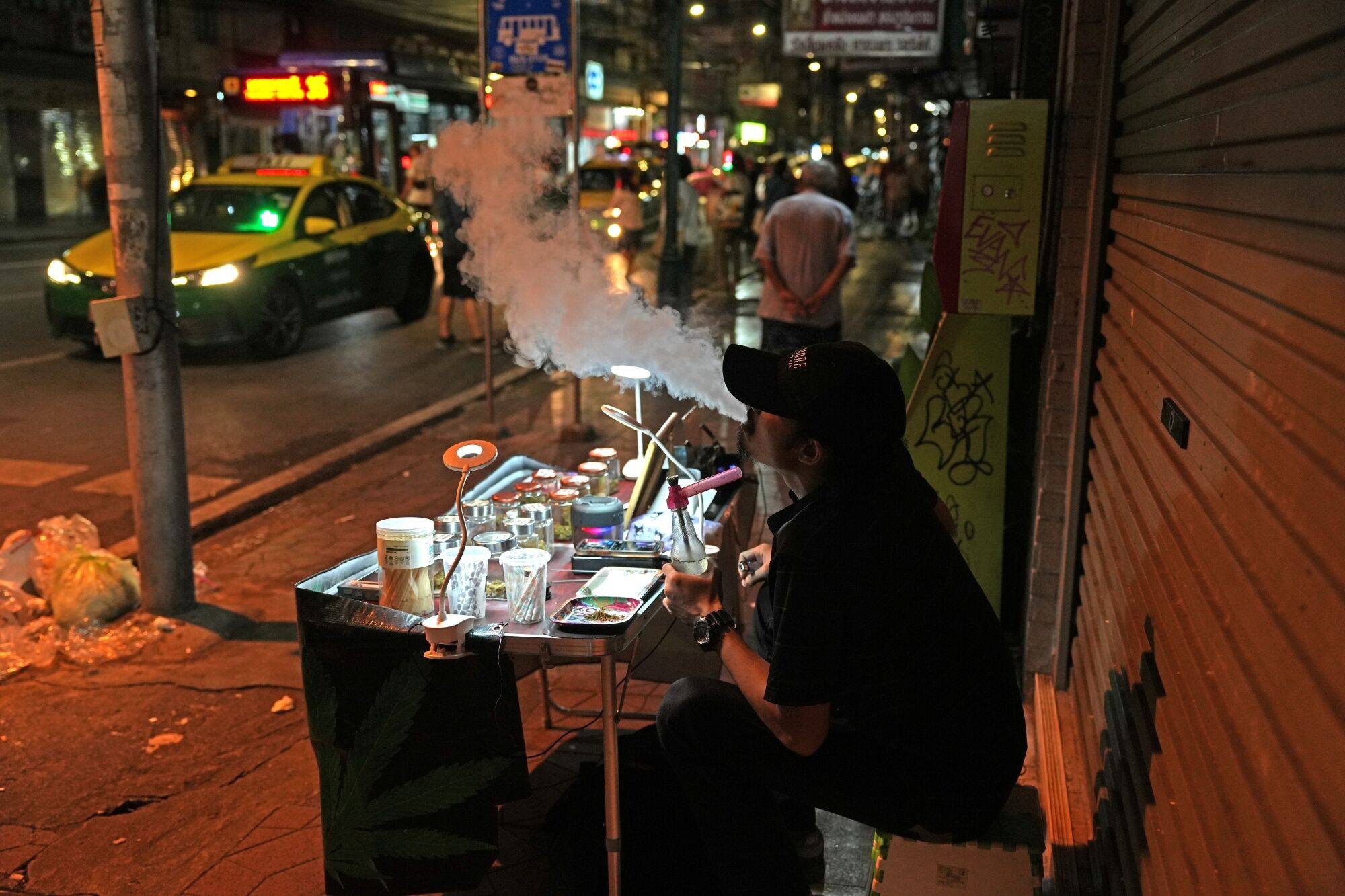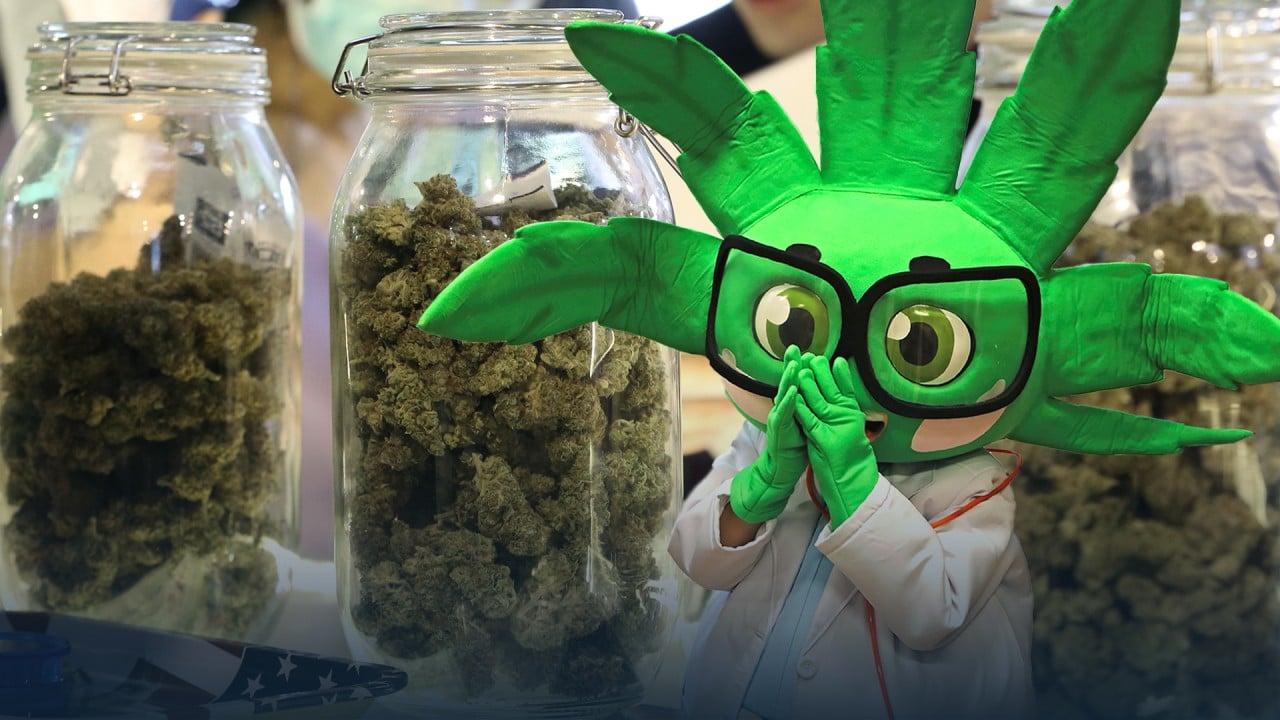Malaysians lament end to ‘safe and cheap’ holiday highs in Thailand as ‘Asia’s Amsterdam’ consider cannabis pivot

This year alone, more than 2.4 million Malaysian tourists entered Thailand, surpassing arrivals from all other countries, including China. While shopping and food-hunting are the main priorities of Malaysian visitors, the kingdom’s sudden progressive attitude towards cannabis has added to the allure of a trip up north for some.
“I’ve been there three times so far,” 25-year-old Malaysian and cannabis user Anna, whose name has been changed due to Malaysia’s tough drug laws, told This Week in Asia. “I am going again next week and in December, so that will be five times this year alone.”
Medical marijuana is also forbidden in Malaysia, where authorities have arrested a number of people who had used the drug as a remedy in the past.
Singer Yasin Sulaiman’s arrest reopens Malaysia’s medical cannabis debate
Singer Yasin Sulaiman’s arrest reopens Malaysia’s medical cannabis debate
Any U-turn by Thailand on its cannabis policy would undo the liberalisation of views on the recreational and medicinal use of the drug that had occurred in Asia over the past year, Anna said.
If Thailand banned the recreational use of cannabis, it would “deter advocacy efforts in Malaysia and elsewhere, and naysayers would say: look at Thailand”, she said.
Nonetheless, the Malaysian government looked into the legalisation of cannabis for medical purposes last year following Thailand’s move to decriminalise the drug.
Khairy’s defeat in the November 2022 general election, however, put an end to the feasibility study, and Malaysia’s new government has yet to give an indication it would revisit the matter.
In Thailand, cannabis decriminalisation became a hot topic of debate in the run-up to the election in May. Srettha’s Pheu Thai Party vowed to reverse the policy, while its coalition partner Bhumjaithai Party planned to reintroduce a bill to tighten monitoring of the cannabis industry.
The Thai leader last month reiterated his opposition to the recreational use of cannabis in an interview with Bloomberg News.
Vowing to “rectify” the cannabis policy and stop the unfettered spread of dispensaries that sell the drug within six months, Srettha said: “The law will need to be rewritten. It needs to be rectified. We can have that regulated for medical use only.”
Thailand’s possible cannabis policy reversal would be welcomed by Malaysian authorities, who have been combating drug smuggling through the porous border between the two countries for many years.
“We are concerned that some [Malaysians] may become addicted to cannabis because they had unwittingly consumed such products,” then-home minister Hamzah Zainuddin said last year after Thailand decriminalised the drug.
Singapore executes citizen for conspiracy to smuggle 1kg of cannabis
Singapore executes citizen for conspiracy to smuggle 1kg of cannabis
Aside from cannabis, Anna said she appreciated Thailand’s openness to using kratom, which is made from trees that are native to Southeast Asia and can produce both opioid- and stimulant-like effects. Malaysia considers it a narcotic, despite a booming legal global market for the extract.
Sarah*, a 34-year-old Malaysian who has been visiting Phuket to consume cannabis, said she did not agree with those who were hardcore supporters of recriminalising the drug.
She said there had been a positive change in the Thai holiday destination since the liberal cannabis policy was implemented.
“It is totally different from what I remember Phuket used to be. It is really like Amsterdam but with sawasdee kha,” she joked, referring to the Thai greeting.

In the past, tourists had to illegally procure cannabis from roadside dealers. But now they can easily buy good quality joints at a reasonable price from small stalls or the more established dispensaries, Sarah said.
A ticket to Phuket, which is a 90-minute flight from Kuala Lumpur and serviced by daily trips by a variety of airlines, goes for as low as US$60, which is cheaper for Malaysians than to travel to even some domestic destinations.
Most Malaysian tourists however enter Thailand via its land borders, spurred by the relative pastoral landscape of the northern end of Peninsular Malaysia as well as the low cost of travelling.
‘Dangerous places’: insurgents, drugs – and tourists – at Malaysia-Thai border
‘Dangerous places’: insurgents, drugs – and tourists – at Malaysia-Thai border
Unlike the hectic Malaysia-Singapore border on the opposite end of the land strip, Malaysians living in states that border Thailand can cross using border passes, which cost only 10 Malaysian ringgit (US$2) a year.
Insurance agent Fauzi Hamad who lives in Perlis – Malaysia’s smallest state – said that Hat Yai, the largest city in southern Thailand a short drive away, offered more attractions than Malaysia.
“It’s convenient to drive there. We just bring our Malaysian ringgit and change to Thai baht there, the rates are favourable,” said Fauzi, who facilitates the vehicle entry process for Malaysians driving to Thailand.
“It’s a unique experience, safe and cheap.”






